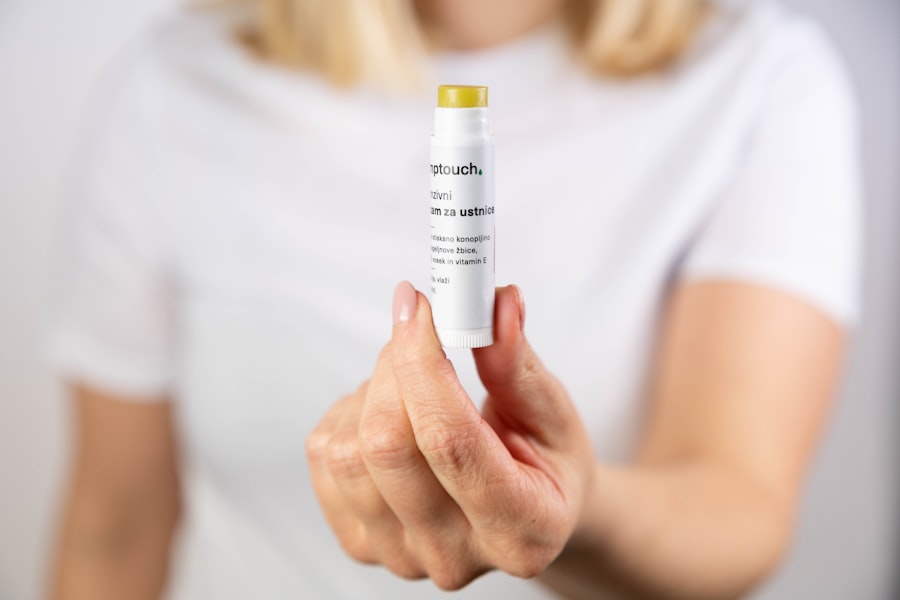When you decide to undergo a laser treatment, it’s essential to grasp the intricacies of the procedure. Laser treatments can vary widely, from hair removal to skin resurfacing, and understanding the specific type you are considering will help you prepare mentally and physically. The procedure typically involves the use of concentrated light beams that target specific areas of your skin.
This technology works by either removing layers of skin or targeting hair follicles, depending on your desired outcome. Knowing what to expect can alleviate anxiety and help you feel more in control. Before the procedure, your provider will likely conduct a thorough consultation to assess your skin type, medical history, and specific goals.
You should feel empowered to discuss your expectations and any concerns regarding pain or recovery time. Understanding the procedure not only prepares you for what lies ahead but also sets realistic expectations for the results.
The more informed you are, the better equipped you will be to navigate the post-treatment phase.
Key Takeaways
- Laser procedures require careful post-care to ensure optimal results and minimize complications.
- Preparing for post-laser care involves gathering necessary supplies and arranging for assistance if needed.
- Immediate aftercare instructions include keeping the treated area clean and protected, as well as avoiding certain activities and products.
- Long-term aftercare instructions involve protecting the treated areas from sun exposure and following up with the provider for additional treatments if necessary.
- Managing discomfort and side effects may involve using prescribed medications and following specific guidelines provided by the provider.
Preparing for Post-Laser Care
Preparation for post-laser care is just as crucial as the procedure itself. Before you even step into the treatment room, it’s wise to gather all necessary supplies that will aid in your recovery. This may include gentle cleansers, moisturizers, and any prescribed ointments.
Having these items on hand will ensure that you can start your aftercare routine immediately after the procedure, which is vital for optimal healing. Additionally, consider setting up a comfortable space at home where you can rest and recover without interruptions. Another important aspect of preparation is to mentally prepare yourself for the changes your skin will undergo post-treatment.
You may experience redness, swelling, or even peeling, depending on the type of laser treatment you received. Understanding that these reactions are normal can help you manage your expectations and reduce any anxiety about your appearance during the healing process. It’s also beneficial to inform family or friends about your procedure so they can provide support and assistance as needed during your recovery.
Immediate Aftercare Instructions

Immediately following your laser treatment, adhering to aftercare instructions is crucial for a smooth recovery. Your provider will likely advise you to keep the treated area clean and dry for the first few days. This means using a gentle cleanser and avoiding any harsh scrubs or exfoliants that could irritate your skin.
It’s also essential to avoid touching or picking at the treated area, as this can lead to complications such as infection or scarring. In addition to keeping the area clean, applying a soothing ointment or moisturizer as recommended by your provider can help alleviate discomfort and promote healing. You may also be advised to use cold compresses to reduce swelling and redness.
Remember that everyone’s skin reacts differently, so it’s important to listen to your body and follow your provider’s specific recommendations closely. Taking these immediate steps can significantly impact your overall recovery experience.
Long-Term Aftercare Instructions
| Instructions | Frequency |
|---|---|
| Take prescribed medication | As directed by the doctor |
| Attend follow-up appointments | Every 3 months |
| Follow a healthy diet | Every day |
| Engage in regular exercise | 3-5 times a week |
As you transition from immediate aftercare to long-term care, it’s essential to continue nurturing your skin for optimal results. Your provider may recommend a specific skincare regimen tailored to your skin type and the treatment you received. This could include using gentle products that are free from irritants and fragrances, as well as incorporating hydrating serums or creams that promote skin barrier repair.
In addition to skincare products, maintaining a healthy lifestyle can also contribute to long-term healing. Staying hydrated by drinking plenty of water and eating a balanced diet rich in vitamins and minerals can support your skin’s recovery process. Regularly applying sunscreen is another critical component of long-term care, as it protects your newly treated skin from harmful UV rays that can cause pigmentation issues or hinder healing.
Managing Discomfort and Side Effects
Experiencing discomfort or side effects after laser treatment is not uncommon, but knowing how to manage these sensations can make a significant difference in your recovery experience. Over-the-counter pain relievers may be recommended by your provider to help alleviate any pain or discomfort you may feel in the days following the procedure. However, always consult with your provider before taking any medication to ensure it’s appropriate for your situation.
In addition to medication, employing natural remedies can also be beneficial in managing discomfort. For instance, aloe vera gel is known for its soothing properties and can provide relief from irritation while promoting healing. Cold compresses can also be effective in reducing swelling and providing a cooling sensation on the treated area.
Listening to your body and responding promptly to any discomfort will help you navigate this phase more comfortably.
Protecting Treated Areas from Sun Exposure

One of the most critical aspects of post-laser care is protecting your treated areas from sun exposure. Your skin will be particularly sensitive after laser treatment, making it more susceptible to sunburn and pigmentation changes. It’s essential to avoid direct sunlight for at least a few weeks following the procedure.
If you must go outside, wearing protective clothing such as wide-brimmed hats or long sleeves can provide an extra layer of defense against harmful UV rays. In addition to physical barriers, applying a broad-spectrum sunscreen with a high SPF is non-negotiable during this period. Look for sunscreens that are specifically formulated for sensitive skin and free from irritating ingredients.
Reapplying sunscreen every two hours when outdoors is crucial for maintaining protection. By taking these precautions seriously, you can help ensure that your skin heals properly and that you achieve the best possible results from your laser treatment.
Avoiding Certain Activities and Products
After undergoing laser treatment, it’s vital to avoid certain activities and products that could hinder your recovery or exacerbate side effects. High-impact exercises or activities that cause excessive sweating should be avoided for at least a week post-treatment, as they can irritate the skin and increase the risk of complications. Instead, opt for gentle activities like walking or stretching that won’t put undue stress on your healing skin.
Additionally, be cautious about the skincare products you use during this time. Avoid harsh exfoliants, retinoids, or any products containing alcohol or fragrances that could irritate your sensitive skin. Stick to gentle cleansers and moisturizers recommended by your provider until your skin has fully healed.
Being mindful of these restrictions will help create an optimal environment for healing and ensure that you achieve the best results from your treatment.
Following Up with Your Provider
Finally, following up with your provider is an essential step in ensuring a successful recovery after laser treatment. Most providers will schedule a follow-up appointment within a few weeks post-procedure to assess how well your skin is healing and address any concerns you may have. This appointment is an excellent opportunity for you to discuss any side effects you’ve experienced and receive guidance on how to continue caring for your skin moving forward.
Maintaining open communication with your provider throughout this process is crucial for achieving optimal results. If you notice any unusual changes in your skin or have questions about your recovery, don’t hesitate to reach out for advice.
By prioritizing follow-up care, you’ll be taking an important step toward achieving the best possible outcome from your laser treatment.
After undergoing laser hair removal, it is crucial to follow proper aftercare instructions to ensure optimal results. One helpful article that provides detailed guidance on post-treatment care is “Customize Interests” from InLaserHairRemoval. This article offers personalized tips and recommendations based on individual needs and preferences, helping individuals tailor their aftercare routine for the best possible outcome. By following these instructions, individuals can maintain smooth, hair-free skin and minimize any potential side effects.
FAQs
What is laser hair removal aftercare?
Laser hair removal aftercare refers to the steps and precautions that should be taken after undergoing a laser hair removal treatment to ensure proper healing and optimal results.
Why is laser hair removal aftercare important?
Laser hair removal aftercare is important to minimize the risk of complications such as skin irritation, redness, and swelling, and to promote the best possible results from the treatment.
What are some common laser hair removal aftercare instructions?
Common laser hair removal aftercare instructions may include avoiding sun exposure, using gentle skincare products, avoiding hot showers and baths, and avoiding activities that may cause excessive sweating.
How long do I need to follow laser hair removal aftercare instructions?
It is recommended to follow laser hair removal aftercare instructions for at least a week or as advised by your dermatologist or laser technician.
Can I apply makeup or skincare products after laser hair removal?
It is best to avoid applying makeup or skincare products with harsh ingredients immediately after laser hair removal. Your dermatologist may recommend specific products for post-treatment care.
What should I do if I experience any discomfort or side effects after laser hair removal?
If you experience any discomfort or side effects after laser hair removal, such as redness, swelling, or irritation, it is important to contact your dermatologist or laser technician for guidance and advice.



